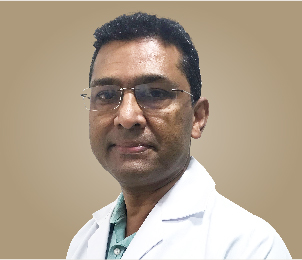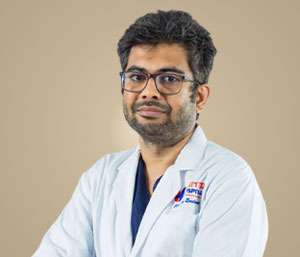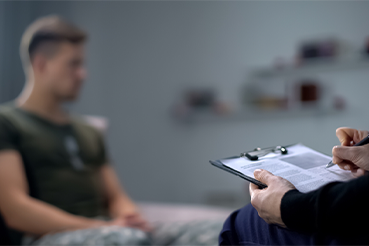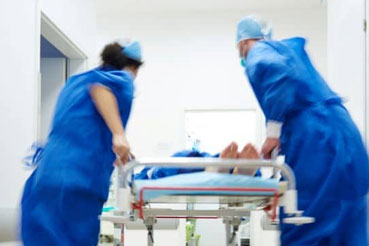The Department of Accident and Trauma Care at United Hospital offers the best facilities, providing emergency medical services and advanced care on par with international standards. It is completely equipped with cutting-edge life-saving equipment that meets international standards. We are available 24 hours a day, seven days a week to assist you in the event of a trauma-related accident, serious burn injuries, snake bite poisoning, cardiac emergency, stroke, or any other medical emergency. Our department provides multidisciplinary and compassionate care to its patients. The team constantly strives to deliver uncompromised care to patients in every step of treatment and keeps patient satisfaction at the forefront.
Accidents are often life-threatening and necessitate rapid medical intervention. Accident victims are transported to the emergency department by ambulance or self-transportation and receive rapid first-aid treatment. If the patient's condition is critical, specialized doctors are called in to care for the patient.
Treatment
.png) CPR (Cardiopulmonary Resuscitation)
CPR (Cardiopulmonary Resuscitation)
CPR is a temporary measure that can be used to keep blood flowing to the brain, heart, and other essential organs until experienced medical experts can administer more sophisticated care. It entails a sequence of chest compressions and rescue breathing.
CPR is particularly successful when administered as quickly as feasible after an accident (within minutes) and when skilled medical personnel arrives within 8 to 12 minutes of the incident.
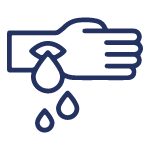 Taking care of blood loss
Taking care of blood loss
Direct pressure applied to the bleeding can stop practically any type of bleeding. This is the most critical first aid to administer. To avoid infection, always wash your hands before (and after) administering first aid to someone who is bleeding. Elevate the bleeding location and place the person on flat ground (arm, leg). Following that, use pressure to stop the flow of blood.
 For severe bleeding
For severe bleeding
Seek medical attention and take precautions to avoid shock.
Make the wounded body portion immobile. Place the person on their back, lift their feet about 12 inches, and cover them with a coat or blanket.
 Taking care of broken bones
Taking care of broken bones
If the skin is broken, it must be treated right away to avoid infection.
If feasible, lightly clean the wound to eliminate apparent debris or pollution, but do not scrape or flush the wound excessively. Immobilize the shattered bone using a splint or sling if necessary. Protect the area above and below the injured bone by immobilizing it. Ice packs can be used to alleviate pain and swelling. However, ice should not be applied directly to the wound.

 (+91) 7022316664
(+91) 7022316664  Emergency: (+91) 80 4566 6616
Emergency: (+91) 80 4566 6616 






.jpg)


.jpg)
